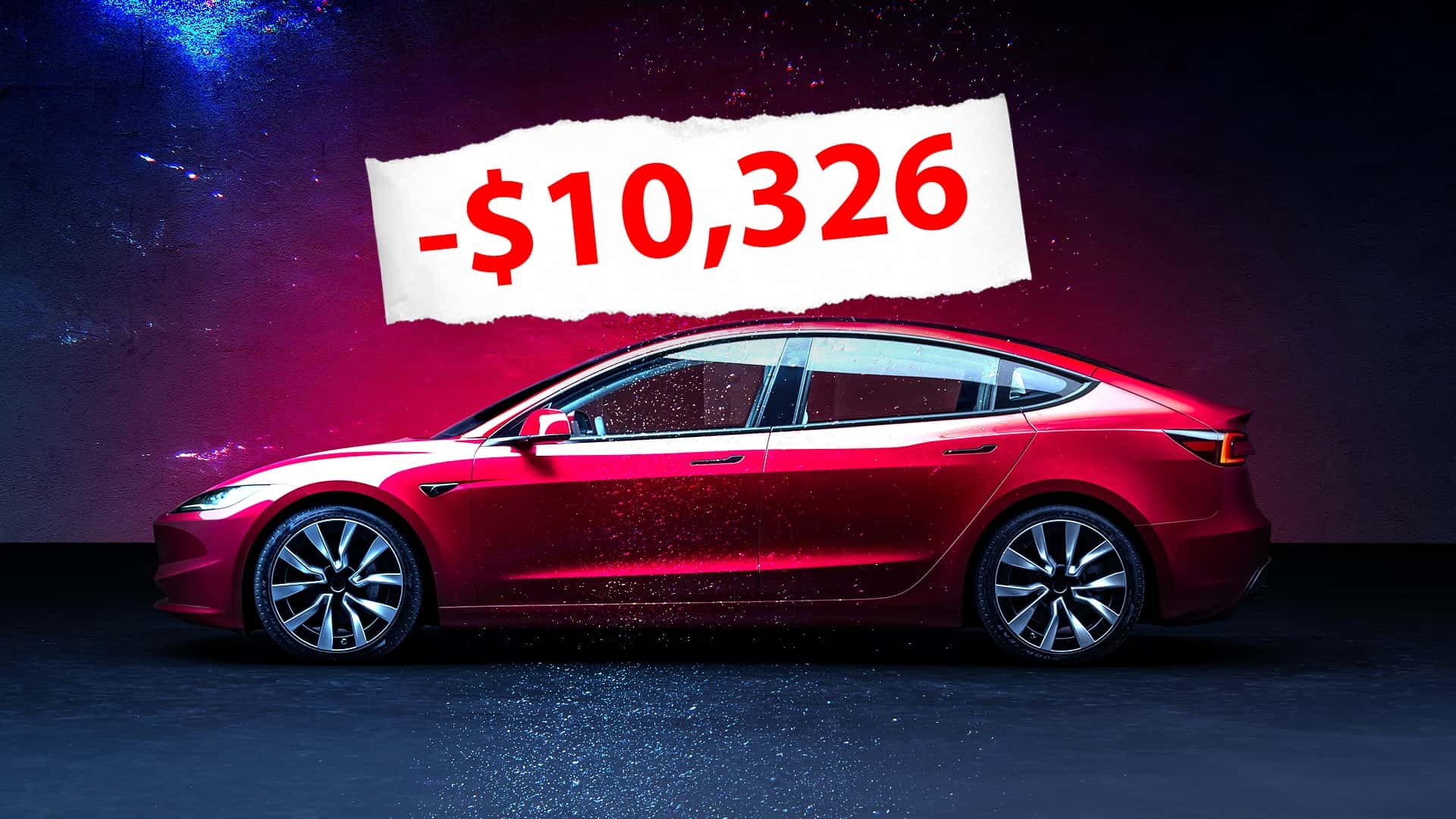
THE AVERAGE EV OWNER IS DEEPLY UNDERWATER ON THEIR LOAN
We knew the recent depreciation problems were having an impact, but the number is bigger than we expected.
If you own an EV, I hope you're not planning to trade it in anytime soon. A new study by Edmunds shows that nearly a quarter of all new car buyers in America are underwater on their vehicle loans, and the offenders with the highest average loss are electrified.
The study shows that the average negative equity in a traded EV nearly doubled in two years, rising from $5,469 in Q2 2022 to a staggering $10,326 just last quarter.
Approximately one in four consumers who financed a new vehicle in Q2 found themselves with negative equity. The study found that 23.9% of all new vehicle sales came with a trade-in carrying an outstanding loan balance greater than the car's value. This is the highest quarter since Q1 of 2021, when 31.9% of trades carried an outstanding, underwater loan.
One of the reasons for the uptick could be how quickly EV owners are trading their vehicles back in. In Q2, owners waited just 2.1 years to trade in their EVs for something new. The average gas-powered car was 3.7 years old.
Historically, vehicles lose the most value within the first year of ownership. Insurance provider Progressive says that during this period, vehicles lose approximately 20% of their total value, followed by 15% up until the four-year mark—the value loss then tapers off after that.
The average vehicle trade-in overall with negative equity was 3.7 years old. This is up from 3.4 years in Q2 2023 and 3.2 years in Q2 2022.
Luxury cars are notorious for losing value much more quickly than their mundane marque counterparts. The Mercedes EQS, for example, is the perfect recipe for this depreciation example—not only is it a luxury car, but it's an EV, too. A study by iSeeCars revealed that the EQS lost a staggering 47% of its value in the first year of ownership.
Edmunds says that this entire report should underline the risk that buyers of any car (not just EVs) purchased at peak pandemic pricing are at risk of being upside-down on their car loans for an extended period of time. It also shows how luxury vehicles and cars equipped with emerging tech can face higher depreciation than tried-and-true gas-powered cars.
Not even corporate buyers are free from depreciation pains, either. Rental company Hertz said that it ate around $195 million in depreciation for its fleet of Tesla Model 3s. That works out to around $592 per car per month. Now, its EVs are on a fire sale to help minimize losses.
“Over the last few years, inflated vehicle trade-in values kept consumers somewhat shielded from falling underwater on their car loans. As the market continues to correct and trade-in values normalize, this protection is falling away, with some vehicle types more affected than others,” said Jessica Caldwell, head of insights at Edmunds.
“It’s not surprising that EV owners are feeling the brunt of accelerated levels of depreciation—this is a fairly standard occurrence for vehicles laden with emerging technology, and incentives on new EVs are only adding to the problem by further depressing used EV values. And this is certainly not making a good case for the fledgling EV market, which is already struggling to gain consumer buy-in.”
More Used EV Value News
2024-07-15T19:29:48Z dg43tfdfdgfd